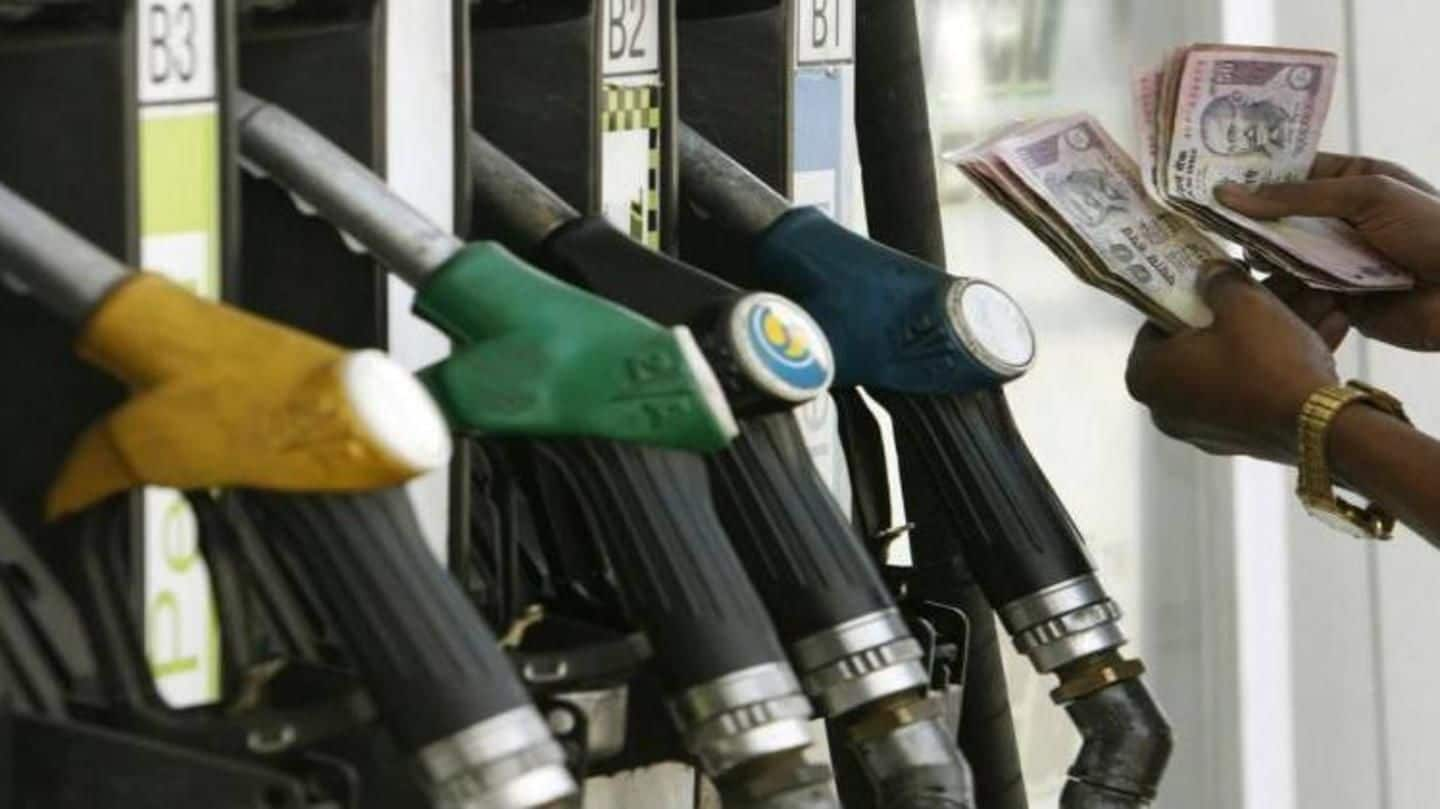
If the government's plan works, fuel-prices could drop by Rs.4-5
What's the story
After two weeks of fuel prices rising every day, hope is on the anvil. The Center is planning to reduce prices by Rs. 4-5 through a multi-pronged strategy, HT reports. On its part, it is considering cutting excise duties marginally. However, the overall drop depends on whether states agree to lessen their VAT, and whether oil companies accept a cut in their commission.
Status
Prices have risen every day for two weeks
Fuel prices have risen every day since the Karnataka elections, after a 19-day suspension of dynamic pricing. Yesterday, petrol was selling at Rs. 78.42/L and diesel at Rs. 69.30/L. This comes on the back of rising global prices: from $47.56 a barrel in 2016-17, it touched $63.80 in March and $69.30 in April. Currently, it is at $75, down from $80 a week ago.
Irony
Amid the crisis, an ironic price cut of Rs. 0.01
The Center has been assuring "long-term" solutions, but with no action. Yesterday, Kerala announced a Rs. 1 cut in fuel prices by marginally reducing sales tax. Ironically, oil companies announced a cut in petrol price by 60p/L and diesel by 56p/L in Delhi yesterday morning, only to retract it and fix the cut at just 1p/L. They blamed a "clerical error" for the confusion.
Firms
Firms have refused to intervene as they make big bucks
To add to woes, Indraprastha Gas Limited announced a hike in CNG prices in Delhi-NCR by upto Rs. 1.55 this week. Firms maintain the global increase in prices is beyond their control, and they operate on thin margins anyway. Yet, they have seen significant rises in profits of late: while IOC recently announced 40.25% increase in profits, for Oil India, it was 72.3%.
Componets
Understanding fuel prices in India
Oil prices in India have several components. For example, in Delhi, 25% of retail petrol price are central taxes; 21.2% state taxes, and 4.7% dealers' commission. Incidentally, when global prices fell, the NDA government increased duties, channeling the revenue to development programs. Officials defended it, saying it had brought in Rs. 1,20,000cr for public spending at a time private companies are refusing to invest.
Solution
Bringing petrol, diesel under GST will keep prices in check
There is widespread demand for bringing fuel prices under GST, which will remove taxes like excise duty and VAT. Even at the highest slab of 28% on base price (Rs. 38 for petrol and Rs. 35.59 for diesel), it would keep prices below Rs. 50. However, it would mean a tremendous revenue loss for both the Center and states. Discussions on this issue continue.